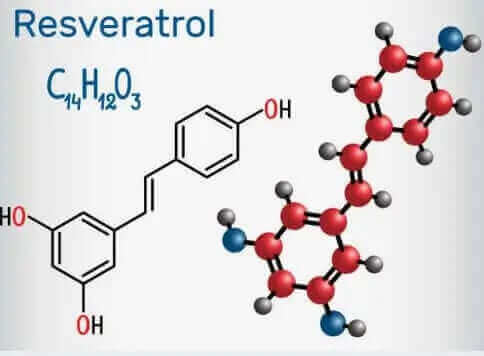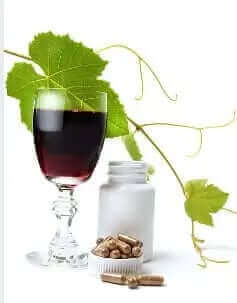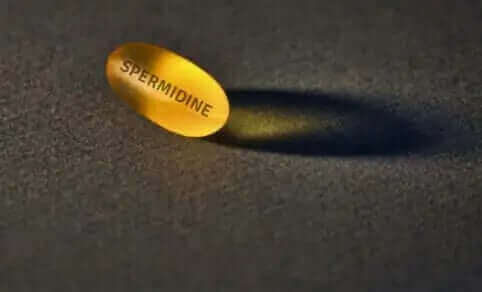Resveratrol: The Complete Guide to Bioavailability, Benefits, and Optimal Absorption
Discover how Resveratrol transforms cellular health through its unique bioavailability profile and proven benefits. This comprehensive guide reveals breakthrough strategies for maximizing absorption and unlocking the full potential of this powerful polyphenol compound.
Understanding Resveratrol Bioavailability: Why It Matters for Your Health
Resveratrol stands as one of nature's most promising compounds for supporting longevity and wellness. Found naturally in red grapes, berries, and peanuts, this polyphenol has captured scientific attention for its remarkable ability to support cellular health. The journey of Resveratrol through your body reveals fascinating insights about how we can optimize its benefits.
When you consume Resveratrol supplements, approximately 75 percent gets absorbed in your digestive system. This impressive initial absorption rate demonstrates your body's recognition of this valuable compound. The unique characteristic that sets Resveratrol apart is its ability to cross the blood-brain barrier, opening possibilities for cognitive support and neuroprotection.
The Science Behind Resveratrol Absorption
Research involving 15 healthy participants who took 500 mg of trans-resveratrol revealed crucial insights. Blood analysis showed that free Resveratrol comprised 0.28 percent of total bloodstream content, while the remainder existed as sulfates or conjugated glucuronides. This transformation represents your body's natural processing mechanism, converting Resveratrol into forms that may offer extended benefits throughout various tissues.
The peak concentration of Resveratrol occurs approximately one hour after consumption, with a half-life ranging from one to three hours. This timing provides valuable guidance for supplement scheduling and helps explain why consistent daily intake produces optimal results.
Maximizing Your Resveratrol Benefits Through Strategic Supplementation
Understanding bioavailability empowers you to make informed decisions about Resveratrol supplementation. Studies demonstrate that individuals consuming 150 mg or more of trans-resveratrol six times daily maintained consistent plasma levels, suggesting that divided doses throughout the day may enhance overall effectiveness.
The rapid metabolism of Resveratrol in the liver, while reducing oral bioavailability to less than 1 percent, actually creates metabolites that continue working throughout your body. These conjugated forms may provide tissue-specific benefits that complement the actions of free Resveratrol.
Resveratrol vs. Pterostilbene: Understanding the Differences
The comparison between Resveratrol and Pterostilbene reveals interesting bioavailability patterns. Pterostilbene shows 80 percent oral bioavailability compared to Resveratrol's 20 percent in animal studies. However, these percentages include both the parent compounds and their sulfate forms, providing a more complete picture of absorption dynamics.
While Pterostilbene demonstrates a longer half-life in preclinical studies (105 minutes versus 14 minutes for Resveratrol in certain animal models), human studies remain limited. The established research base for Resveratrol in human health provides confidence in its effectiveness despite seemingly lower bioavailability numbers.
Proven Health Benefits of Resveratrol Supplementation
Resveratrol's health benefits extend across multiple body systems, supported by extensive human clinical trials. This powerful compound influences cellular pathways related to healthy aging, including support for balanced inflammation response, cellular cleanup processes (autophagy), and protection of telomeres.
Weight Management and Metabolic Health
Controlled studies demonstrate that Resveratrol supplements aid in weight loss through multiple mechanisms. By supporting healthy blood sugar metabolism and enhancing mitochondrial function, Resveratrol helps your body utilize energy more efficiently. Participants in clinical trials experienced improvements in body composition and metabolic markers.
Cardiovascular Support
Resveratrol promotes cardiovascular wellness by supporting healthy blood flow and protecting blood vessels from oxidative stress. Research participants showed improvements in endothelial function, blood pressure regulation, and overall heart health markers. These benefits contribute to long-term cardiovascular resilience.
Cognitive Function and Mood Enhancement
The ability of Resveratrol to cross the blood-brain barrier translates into tangible cognitive benefits. Studies report improvements in memory, focus, and mood stability. By supporting healthy brain circulation and protecting neurons from oxidative damage, Resveratrol helps maintain mental clarity and emotional balance.
Optimizing Your Resveratrol Protocol for Maximum Results
Success with Resveratrol supplementation comes from understanding how to work with your body's natural processes. Consider these evidence-based strategies:
- Timing Matters: Take Resveratrol with meals containing healthy fats to enhance absorption
- Consistency Counts: Daily supplementation maintains steady tissue levels for ongoing benefits
- Quality Selection: Choose trans-resveratrol forms for optimal biological activity
- Divided Doses: Consider splitting your daily intake to maintain more consistent blood levels
- Synergistic Support: Combine with other antioxidants for enhanced cellular protection
The Future of Resveratrol Research and Applications
Emerging research continues to uncover new applications for Resveratrol in supporting human health. Scientists explore its potential in areas including:
- Longevity and healthy aging support through sirtuin activation
- Exercise performance enhancement and recovery optimization
- Skin health and protection from environmental stressors
- Joint comfort and mobility maintenance
- Immune system balance and resilience
The extensive body of research supporting Resveratrol provides confidence in its safety and effectiveness. Unlike newer compounds with limited human data, Resveratrol benefits from decades of clinical investigation demonstrating real-world results.
Making Resveratrol Work for Your Wellness Journey
Your path to optimal health deserves support from compounds with proven track records. Resveratrol offers that reliability, backed by thousands of published studies and countless success stories. Whether you seek enhanced energy, clearer thinking, or long-term wellness support, Resveratrol provides a scientifically validated solution.
The key to success lies in consistent supplementation with high-quality variants of Resveratrol that your body can effectively utilize. By understanding bioavailability dynamics and following evidence-based protocols, you position yourself to experience the full spectrum of benefits this remarkable compound offers.
Choosing Quality Resveratrol Supplements
Not all Resveratrol supplements deliver equal results. Look for products that specify trans-resveratrol content, as this form demonstrates superior biological activity. Advanced formulations may include complementary compounds that enhance absorption or provide synergistic benefits.
Consider factors such as manufacturing standards, third-party testing, and company reputation when selecting your Resveratrol source. Investment in quality supplementation pays dividends through better results and peace of mind about what you're putting in your body.
Your Resveratrol Success Story Starts Today
Every journey toward better health begins with a single step. For many, that step involves incorporating Resveratrol into their daily wellness routine. The compound's proven ability to support multiple aspects of health makes it an ideal foundation for comprehensive wellness strategies.
Imagine experiencing sustained energy throughout your day, sharper mental focus, and the confidence that comes from supporting your body at the cellular level. These benefits represent just the beginning of what Resveratrol supplementation can offer when approached with knowledge and consistency.
Start your Resveratrol journey with realistic expectations and commitment to daily supplementation. Track your progress, noting improvements in energy, mood, and overall wellbeing. Many users report noticeable benefits within weeks, with continued improvements over months of consistent use.
Frequently Asked Questions About Resveratrol
What is the best time of day to take Resveratrol supplements?
The optimal time to take Resveratrol depends on your personal goals and routine. Many people find morning supplementation with breakfast provides sustained energy throughout the day. Taking Resveratrol with a meal containing healthy fats enhances absorption. Some individuals prefer evening doses to support overnight cellular repair processes. The key is consistency - choose a time you can maintain daily for best results.
How long does it take to see results from Resveratrol supplementation?
Individual responses vary, but many people report initial benefits within 2-4 weeks of consistent daily supplementation. Energy improvements and mental clarity often appear first. Cardiovascular and metabolic benefits typically become measurable after 8-12 weeks. Long-term cellular health benefits accumulate over months and years of regular use. Patience and consistency reward you with comprehensive wellness improvements.
Can I get enough Resveratrol from food sources alone?
While foods like red grapes, blueberries, and peanuts contain Resveratrol, achieving therapeutic doses through diet alone proves challenging. A glass of red wine contains approximately 1-2 mg of Resveratrol, while effective supplement doses range from 150-500 mg daily. Supplementation provides concentrated, standardized amounts that research shows deliver measurable health benefits. Combine dietary sources with quality supplements for optimal results.
Is Resveratrol safe for long-term daily use?
Extensive research supports the safety of Resveratrol for long-term supplementation. Clinical studies using doses up to 5,000 mg daily showed no significant adverse effects. Most people experience excellent tolerance with standard doses of 150-500 mg daily. As with any supplement, consult your healthcare provider, especially if you take medications or have health conditions. The compound's long history of safe use provides confidence for ongoing supplementation.
What makes trans-resveratrol different from regular Resveratrol?
Trans-resveratrol represents the biologically active form that your body recognizes and utilizes effectively. Regular Resveratrol may contain both trans and cis forms, with cis-resveratrol showing minimal biological activity. Quality supplements specify trans-resveratrol content to ensure you receive the form proven effective in research studies. This distinction makes a significant difference in the results you experience from supplementation.
Can Resveratrol help with exercise performance and recovery?
Research demonstrates Resveratrol's ability to enhance exercise capacity and accelerate recovery. By supporting mitochondrial function and reducing exercise-induced oxidative stress, Resveratrol helps muscles work more efficiently and recover faster. Athletes report improved endurance, reduced muscle soreness, and better overall performance. Take Resveratrol 1-2 hours before exercise for performance benefits or immediately after for enhanced recovery.
How does Resveratrol support healthy aging at the cellular level?
Resveratrol activates sirtuins, proteins that regulate cellular health and longevity. This activation supports DNA repair, maintains telomere length, and enhances cellular energy production. By promoting autophagy (cellular cleanup) and reducing oxidative damage, Resveratrol helps cells function optimally as you age. These mechanisms translate into visible benefits like sustained energy, mental sharpness, and overall vitality that define healthy aging.
What should I look for when choosing a Resveratrol supplement?
Select supplements that clearly state trans-resveratrol content and purity levels. Look for third-party testing verification and manufacturing in certified facilities. Advanced formulations may include absorption enhancers or complementary antioxidants. Avoid products with unnecessary fillers or artificial ingredients. Price often reflects quality - invest in reputable brands with proven track records for consistent results and safety.
Can Resveratrol interact with medications or other supplements?
Resveratrol generally shows excellent compatibility with other supplements and most medications. However, because it may enhance blood flow and have mild anti-platelet effects, consult your healthcare provider if you take blood-thinning medications. Resveratrol works synergistically with other antioxidants like quercetin and vitamin C. Always inform your healthcare team about all supplements you take to ensure optimal safety and effectiveness.
Why choose Resveratrol over other anti-aging supplements?
Resveratrol stands apart due to its extensive research validation and multi-system benefits. Unlike single-purpose supplements, Resveratrol supports cardiovascular health, cognitive function, metabolic wellness, and cellular longevity simultaneously. Its ability to activate longevity pathways while providing immediate benefits like enhanced energy makes it a comprehensive solution. The thousands of published studies provide confidence that newer compounds simply cannot match.
References







